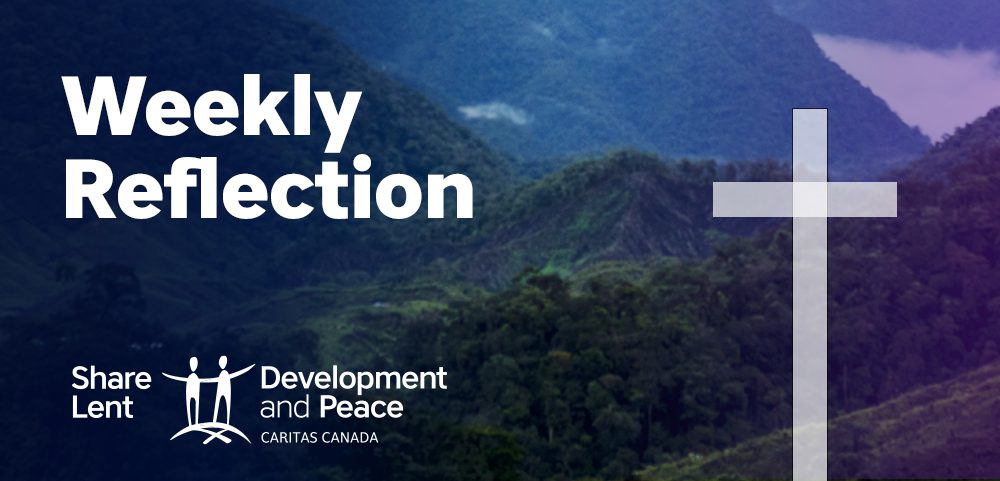

Readings: Exodus 17:3-7; Psalm 95:1-2, 6-7, 8-9; Romans 5:1-2, 5-8; John 4:5-42 or John 4:5-15, 19b-26, 39a, 40-42
But I tell you, look around you, and see how the fields are ripe for harvesting.
John 4:35
Let’s Stand for the Land
On this 3rd Sunday of Lent, the Gospel recounts the story about a conversation between a man (Jesus) and a Samaritan woman at a place that is important to the citizens of Samaria in Palestine. It is the well, an indispensable place that provides the water needed by a community. A place of life, of meetings and of fruitfulness.
In the Bible, the Word of God, there is water everywhere. There is a special place for water in the life of Jesus. In the encounter with the Samaritan woman, Jesus tells her that he is the source of living water. Many Old Testament stories speak of the importance of the well. It is, among other things, a propitious place for marriages. Jacob and Rachel, Moses and Zipporah, and Isaac and Rebekah all met near wells.
Just as in the time of Jesus, wells today are still important, especially for rural communities in the Global South. And just like wells, land and territory constitute vital elements for a community. People use land to build a shelter or a house to raise and watch their children grow. They use land to sow seeds in a field and harvest food after some months of hard work. To speak of territory and land means speaking of the bonds of life, of knowledge, and of alliances and traditions that the members of a community create with their territories and lands over years and generations. It is also a means of telling and transmitting their individual and communal stories.
It can thus be said that the territory is a kind of treasure. A treasure that deserves to be defended at all costs. That is why communities mobilize to protect their native territories or the territories that have been legally recognized as theirs. For the Asociación Campesina de Antioquia (ACA, Peasant Association of Antioquia), a Development and Peace ― Caritas Canada partner in Colombia, defending the territory means: “To continue to live, respecting the land and cultivating food whilst dignifying memory, defending life and building other possible relationships with the territory and within communities; all while valuing the diversity of stories and learning that coexist in the vast and complex territory.”
As we can see, the concept of territory goes beyond geographical space. It includes all the diverse relationships through which people and communities appropriate, use and interact with space.
Thanks to your donations, Development and Peace ― Caritas Canada is supporting ACA, which supports peasant communities in defending their territories and waters.
“ … but those who drink of the water that I will give them will never be thirsty.
The water that I will give will become in them a spring of watergushing up to eternal life.” (John 4:14)
For the peasants (campesinos) in Colombia, water is life. Like Jesus and the Samaritan woman at the well, the campesinos gather around their water, weave bonds, unite to celebrate and protect it and to defend their right to live with dignity in their territory. Let us show solidarity and stand with communities that protect their territories and waters, two sources of life that sustain the survival of human beings and biodiversity for present and future generations.

